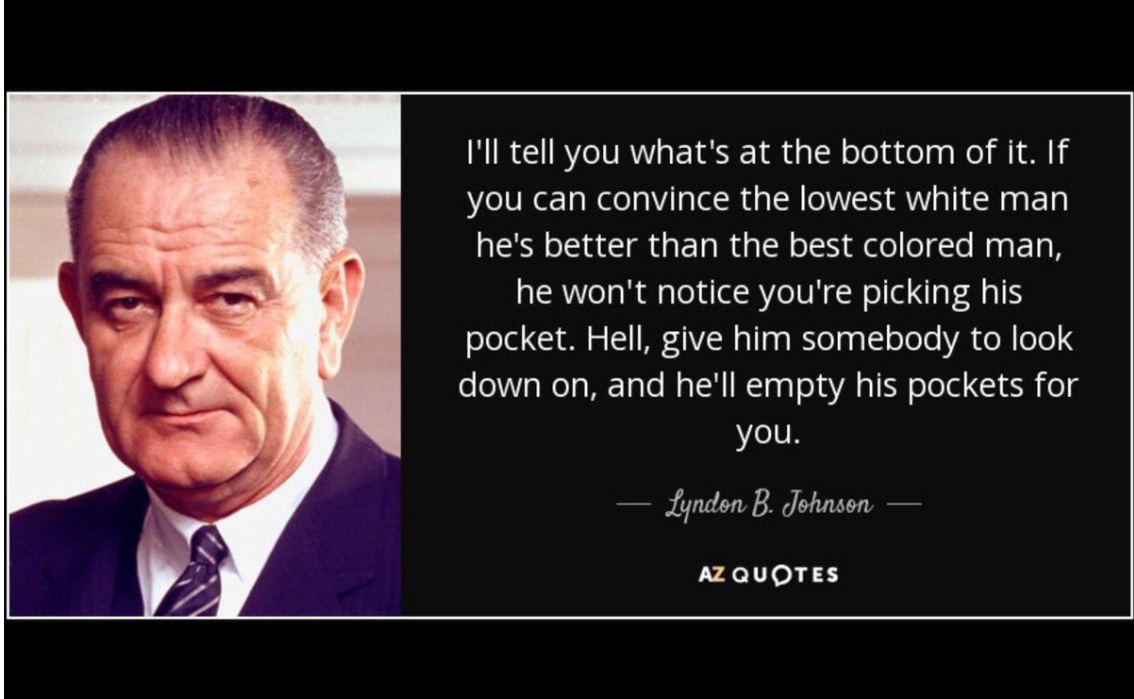Appreciate it.
Yeah it's kinda hard to teach american history without mentioning slavery, him crow, and all that race stuff.
Repping today and sometime in the future when I can again
to add to his points as it relates to Derrick Bell's "Interest Convergence".
Interest Convergence – Equitable Coaching
snippet:
Interest Convergence is a concept for white allies to be mindful of at the moment. It was coined by the legal scholar and Critical Race Theorist, Professor Derrick Bell (1980) published in The Harvard Law Review. Bell noticed an interest convergence dilemma: societal change supposedly to make society more equitable for black and brown people frequently makes situations worse and further oppresses the very groups they seek to liberate.
Bell’s seminal essay in 1980 was an analysis of Brown versus the Board of Education from 1954 – an important Supreme Court case that led to end of state-mandated racial segregation in American state schools. Bell speculates about, why then? Why in 1954? Campaigners had been trying for years to change this legislation and suddenly it was changed.
Bell suggests that, at that time, elite white interest and the interests of Black Americans had for a time had ‘converged.’ Conflicts of interest for the establishment had, momentarily, been removed. It was revealed later through the release of government papers (Delgado, 2012), the American government had been afraid that post -war in Korea with African American soldiers fighting in uniform to uphold national values and after selling the American brand of ‘equality’ throughout the world, America couldn’t be seen to have domestic unrest and resistance should the government seek to continue to enforce segregation. The conflict of interest was removed and suddenly schools were, after decades of struggle, desegregated.
Bell notes it was not through human decency, a sense that we must have equity and a need to ensure people have their human rights that led to the change but rather a least-worse option that forced the establishment’s hand. Bell was criticised for being cynical at the time and understating what these legislative changes led to and how they benefitted the civil rights movement. But here we are again, with white police officers feeling both able to both murder a black man on the street and feeling able to watch their colleague kill another human being and standby. These men were at the time working for one of the biggest national institutions in America.


